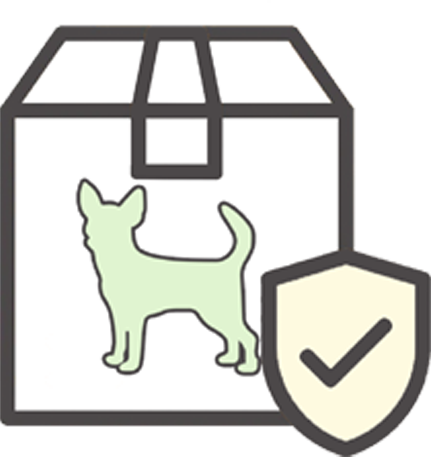Common Dog Allergies and What to Do About Them
Updated On: Thursday, March 6, 2025 05:49:02 AM America/Los_Angeles
It’s almost springtime, and you know what that means.
Achoo!
That’s right. Allergies. They make your eyes water, your nose run and skin itch; they can give you a mean headache and even worse congestion. They can even make you break out in hives! Your dogs can get allergies too- and interestingly, dog allergies are fairly similar to human allergies in both allergen (the trigger of any given allergy) and their myriad of manifestations.
Below we've listed some of the most common dog allergies, how to know when your pup is having an allergic reaction, and what to do about it.
Photo by Hendo Wang
Food Allergies
How to Tell: Food allergies are triggered by proteins and carbohydrates. For dogs, the most common food allergies are beef and dairy products, chicken eggs, lamb, wheat gluten, and soy. Because a dog’s allergic reaction to their food can be any of the other symptoms previously discussed, it can be difficult to tell what exactly is setting off your dog’s symptoms. Typically food allergy symptoms manifest in the form of itching, respiratory issues, or digestive trouble.
What to Do: Put your dog on a special 8-12 week diet to see if their symptoms go away. If they do, your vet will let you know the next steps you’ll need to take. If your dog is experiencing digestive trouble, it can be helpful to keep an indoor dog potty close by in case of emergencies!
Insect Allergies
How to Tell: Flea saliva is the most common allergen found in dogs by far, and I know this one seems like a gimme, but if your pup starts itching a little more than usual, it might be time to check their skin for fleas. Dogs with a heightened sensitivity to flea bites tend to scratch or bite themselves in extremely localized areas, removing chunks of hair from their bodies and creating open wounds which can welcome in bacterial infections. Yikes!
What to Do: Monthly flea preventative medications can be applied at home, and usually suffice to keep most of those irritating insects off of your furbaby. If this isn’t enough, you may want to pay your vet a visit- they may prescribe antihistamines or cortisols to reduce the itchiness and swelling caused by flea bites. When medicine isn’t enough and you want to give your sensitive and itchy pup a break from going outside and picking up more fleas (or, heaven forbid, ticks), we suggest having a designated space in your home, such as a fresh grass dog bathroom option, so that your pup has some time to mend.
Inhalant or Seasonal Allergies
How to Tell: Just like us, some dogs get seasonal and inhalant allergies. Allergies to pollen and mold are quite common in dogs, and the way these allergies manifest are usually through itching their underarms, rubbing their face, or licking their paws. More uncommon symptoms include bronchitis or a runny nose.
What to Do: Take your pet to the vet and have the doctor run a few allergy tests so that you can figure out what allergens are triggering your dog’s allergy symptoms. The vet may prescribe an allergy shot, an antihistamine or cortisol treatment, or possibly a hypoallergenic shampoo. Additionally, do your best to remove your dog from contact with the allergen when you can. Be sure to rid your home of mildew if it makes your pup sniffly and opt for an indoor pet potty solution like DoggieLawn during the spring if your furbaby has a pollen allergy. That’ll keep their nose from running and their face from itching while they do their business. Your dog will thank you!
Most allergies cause your dog to itch! To help relieve their itchiness, hemp products may be useful. Various hemp sprays, oils, and chews can help your dog's itching and the anxiety associated with extreme itching.


